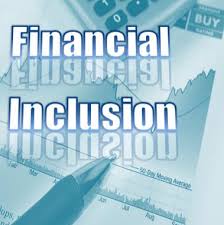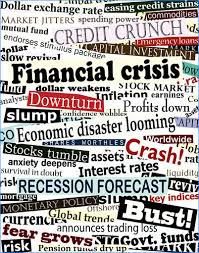Financial Inclusion:
Financial inclusion or inclusive financing is meant to extend financial services to large hitherto un-served population to unlock the growth population. In addition, it strives towards a more inclusive growth by making financing available to the poor in particular. The financial services include not only banking products but also other services such as insurance and equity products. Financial services are delivered by a range of providers, both public and private, to a financially capable clientele.
Need for Financial Inclusion:
Customers, Nations, and Providers can all benefit from financial inclusion.
At the customer level financial inclusion matters to individuals, their families, and their small enterprises. Access to a suite of quality services tailored to client needs unlocks opportunities and improves lives in multiple ways.
Convenient payment systems increase the efficiency of economic transactions.When payment systems improve, and especially when they shift from cash to electronic, the time and money eaten up by transaction costs are freed for other uses. Access to bank accounts and short-term loans allow low-income households with small and irregular incomes to manage day-to-day resources.
Low-income people face many vulnerabilities, from illness to theft to unemployment. Many families just emerging from poverty could fall back into it if faced with a health or business emergency. Insurance, savings, credit, and even remittances provide sustainable and low-cost coping strategies. If a financially included member of the household loses her source of income, she might not have to withdraw a child from school, sell a valuable asset, or fall deeper into poverty. Expanding financial services to more people can increase a country’s economic productivity. Many of the world’s middle-income countries are now experiencing a unique demographic transition, with an especially large cohort of working age people relative to dependent children and elderly. This transition creates an opportunity for unparalleled economic growth – but only if the society can enable its working age members to fulfil their economic
Expanding financial services to more people can increase a country’s economic productivity. Many of the world’s middle-income countries are now experiencing a unique demographic transition, with an especially large cohort of working age people relative to dependent children and elderly. This transition creates an opportunity for unparalleled economic growth – but only if the society can enable its working age members to fulfil their economic potential. Financial inclusion can be one of the key economic policies setting a society up to take advantage of this demographic transition.
Nations prioritizing inclusive societies and growth see financial inclusion as part of their critical path. Incorporating financial inclusion into government’s own interactions with citizens through electronic government-to-person payments can save them significant sums, substantially reduce fraud, and act as an “on-ramp” to other forms of inclusion.
From a fiscal perspective, financial inclusion can help lighten a government’s load Development goals pose daunting fiscal challenges for governments charged with meeting the many needs of their population However, if a poor family steadies its economic life using financial services, its need for cash transfers decreases Government’s burden falls The same goes for health, housing, education, and pensions Financial services that help people become more self-sufficient reduce the need for government subsidies
Finally, many policymakers seek financial inclusion as one of the several types of inclusion needed for social and economic justice.
The provider case for financial inclusion is quite straightforward. The untapped market for financial services constitutes an enormous and increasingly viable opportunity, one that will only grow throughout the coming decades. The 21st century will belong to the world’s developing countries and their majority populations. Businesses with an eye on the future will secure the loyalty of these prospective customers early on.
According to the IMF reports, even in today’s increasingly interconnected world, linked by ever-growing financial flows, more than a third of the global population is still financially excluded. Financial inclusion is the need of the hour as it empowers individuals and families, especially women and the poor, and well-functioning financial systems enrich whole countries.
Click here for government certification in Accounting, Banking & Finance





6 Comments. Leave new
Well explained, I must say. People really need to be made aware of such schemes and you are doing a great job in that.
Thanks Shatakshi !
Such a precise and cohesive article..amazing
Thanks Akshita !
Good something new to read 😀
GOod work 😀
Keep it up
The content and all were really presice and awesome
informaive…t